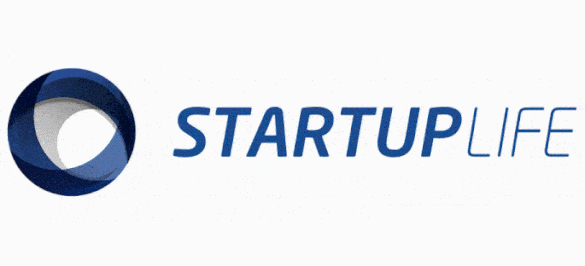A Fintech is a technology-based company focused on the financial market that offers innovative services and products, such as credit, payments, investments, and insurance. With digital processes, these companies offer agile, less bureaucratic, and more accessible solutions compared to the traditional financial system.
Fintechs also promote financial inclusion, allowing access to financial products for people and businesses. In this article, we will address the concept of fintech, its different types, and prominent examples in the Brazilian market.
Content:
- What is a fintech?
- How do fintechs work?
- What types of fintech are there?
- How many fintechs exist in Brazil?
- What is a credit fintech?
- What is a payment fintech?
- What is necessary to open a fintech?
- What is the difference between fintech and startup?
What is a fintech?
A fintech is a technology-based company focused on the financial market that offers innovative services and products. These companies aim to debureaucratize the sector, making financial transactions more accessible, faster, and cheaper. Among the solutions offered by fintechs are the simplification of banking, investment, loan, and payment processes.
Fintechs have stood out in recent years due to the debureaucratization they have caused in the financial market. These companies continue to challenge traditional institutions and implement innovative solutions that are shaping the future of the sector.
How do fintechs work?
By using advanced technologies, such as AI and blockchain, fintechs offer a better user experience and increase the security of financial transactions. Processes that took days or weeks to be carried out by “big banks” can be completed in minutes with fintechs.
Another highlight of the role of fintechs is related to personalization. Many of these companies offer services that are tailored to the specific needs of each client.
Security and transparency
For fintechs to operate, security in their operations is essential. Therefore, fintechs invest in security mechanisms to protect user data and the integrity of transactions.
Transparency is another point of fundamental importance in the operation of these companies. They seek to provide their clients with clear and detailed information about the services and products offered.
User experience
Intuitive interfaces are essential for the success of a fintech. Debureaucratizing the sector depends on platforms that make access and use of services simpler. Strategies such as mobile applications, chatbots, and efficient support help to improve the user experience and satisfaction.
What types of fintech are there?
Payment Institutions (IPs) encompass companies that offer solutions for transfers, card issuance, and digital payment services. An example is digital wallets that centralize different payment methods on a single platform. These fintechs allow for greater agility in transactions without the need for banking intermediaries.
The Peer-to-Peer Lending Company (SEP) specializes in the peer-to-peer lending model. In this system, individuals or legal entities lend directly to others, through a digital platform. This reduces administrative fees and personalizes credit conditions. It is a way to democratize access to financing.
The Direct Credit Company (SCD) operates by granting loans and financing with its own resources, without resorting to institutions. Using data intelligence, these fintechs can perform rapid credit analysis, approving proposals in a few hours or minutes. This increases efficiency and reduces the cost for the end customer.
Investment management fintechs help investors manage their financial portfolios through advanced algorithms and artificial intelligence. They offer risk analysis, yield projections, and automation of investments, improving access to investment strategies previously restricted to large investors.
Another important type is digital insurers, which debureaucratize insurance contracting. With intuitive platforms, they allow users to customize coverage and simulate values in real-time, ensuring a more practical and transparent experience.
There are also fintechs specializing in cryptocurrencies and open banking, which offer innovative services for accessing and managing financial data. These businesses promote competition in the sector and integration between different banking systems.
How many fintechs exist in Brazil?
The Brazilian fintech market has grown exponentially over the years, being one of the most dynamic in Latin America. According to a survey published by Distrito in February 2024, out of the 13,365 active startups in the country, 1,476 are fintechs.
The sector is growing with the demand for accessible financial services, including regions without access to banks. The impact of fintechs in Brazil is also present in reducing transaction costs and improving the user experience.
What is a credit fintech?
Credit fintechs are companies that revolutionize the granting of loans, simplifying and accelerating the process for both individuals and legal entities. Using advanced algorithms, these companies analyze the financial profile with data on payments, consumption, and online behavior. This expands credit opportunities, offering alternatives to consumers who, in a traditional model, could be rejected.
In addition, credit fintechs can offer more attractive conditions, such as reduced interest rates, since their operating costs are lower. Models such as the Direct Credit Company (SCD) and the Peer-to-Peer Lending Company (SEP) are examples of this advance in the financial sector.
What is a payment fintech?
Payment fintechs facilitate financial transactions, such as online payments and transfers, quickly and securely. They are essential for e-commerce and the daily lives of consumers.
They offer services such as digital wallets, payment gateways, and mobile solutions. Digital wallets have gained popularity by allowing transactions without physical cards, only with a smartphone.
What is necessary to open a fintech in Brazil?
To open a fintech, it is necessary to follow several steps and have business and technical skills. These include: innovative ideas, market research, business plan development, legal compliance, technology development, and fundraising.
Developing an innovative idea that solves a specific market problem is essential. This stage includes market research, competitor identification, and target audience definition. It is also necessary to analyze customer needs and the gaps that the fintech can fill. Then, it is necessary to create a business plan with the revenue model, marketing plan, and financial projections.
Another important aspect for opening is ensuring legal compliance, obtaining the necessary licenses and authorizations, and following applicable regulations. In technology development, it is necessary to create an efficient and secure platform for offering services. Raising financial resources is also important in opening and expanding the business.
Having a qualified and committed team of employees is essential for the success of the business. The staff should include professionals with experience in technology, the financial market, marketing, and law. It is also worth remembering that the success of a fintech depends on the ability to execute the business strategy effectively.
What is the difference between Fintech and Startup?
Although all fintechs are startups, not all startups qualify as fintechs. Fintechs are companies focused exclusively on the financial sector, while startups can operate in a wide variety of segments. To understand better, it is worth exploring the differences and similarities between these categories, highlighting their characteristics and objectives.
The main difference lies in the focus of each type of business. Startups are companies that seek to innovate and grow rapidly in different sectors, using technology to solve problems and create new market opportunities. They can operate in areas such as health, education, transportation, e-commerce, among others.
Fintechs, on the other hand, are a specific category of startups, directed to innovation in the financial sector. They use technology to offer financial services in a more efficient and innovative way, covering areas such as payments, loans, investments, insurance, and financial management.
Despite sharing characteristics, fintechs face the additional challenge of operating in a heavily regulated environment. This requires them to have a deep understanding of financial laws and regulations, as well as strategies to adapt to a dynamic and competitive market.
Another highlight is the significant impact that fintechs have on the financial sector. These companies have transformed the way people and businesses manage their money, presenting efficient solutions that promote greater inclusion and accessibility. Because of this, fintechs play an important role in the evolution of the global financial system, influencing the market in an innovative and disruptive way.
For further information regarding our services, get in touch:











